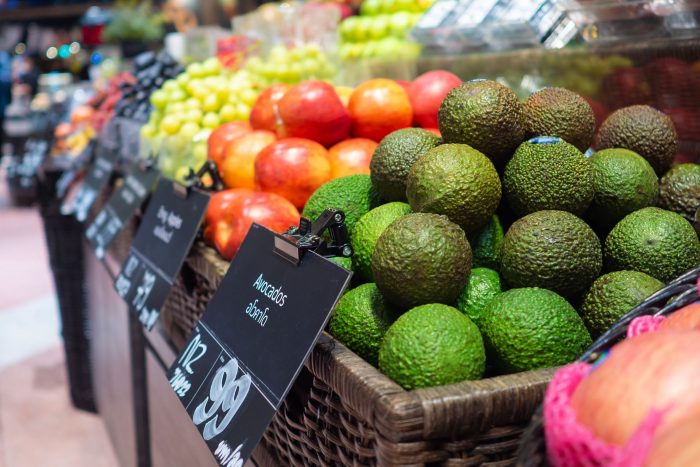
Happy March! This month, we celebrate the official beginning of spring and say goodbye to the grey, gloomy, cold weather of winter. As the weather starts to warm up, we get to spend more time outside. Gardening can be a very rewarding and relaxing hobby, but if you don’t enjoy getting dirt under your fingernails, your local grocer will start filling the produce section with lots of fruits and vegetables that are in season. What can you expect when you go to the store? Check out the list of what fruits and vegetables are coming in season this month.
I challenge you to pick one thing on this list that you aren’t familiar with and give it a try. Find a yummy recipe online, then go shopping and get a few of that item of produce. Try it raw or broiled or baked. The possibilities are endless!
What’s in Season for March?
Asparagus, Apples, Artichokes, Avocados, Bananas, Beets, Bok Choy, Broccoli, Brussels Sprouts, Cabbage, Carrots, Cauliflower, Celery, Citrus, Greens, Kiwi, Leaks, Lemons & Limes, Mango, Mushrooms, Parsnips, Pears, Pineapples, Potatoes, Rutabagas, Strawberries, Sweet Onions and Turnips.
What are some of the health benefits of the fruits and vegetables just coming into season?
Asparagus: A very good source of fiber, folate, and Vitamins A, C, E and K, this veggie is a great one to add to meals.
Apples: Apples are low in sodium, fat, and cholesterol. They don’t offer protein, but apples are a good source of vitamin C and fiber.
Artichokes: A fat-free, low-sodium food, artichoke is also rich in key nutrients, including: Potassium, Fiber, Vitamin C, Magnesium, and Folate.
Avocados: Avocado lovers can rejoice – this favorite food is available year-round! They are packed with Potassium, Monosaturated Fats, Fiber, and Folate.
Bananas: This yellow fruit has many health benefits like Potassium, Fiber, Prebiotics, Vitamins B6, C and A, as well as Magnesium.
Bok Choy: Bok choy is full of cancer-fighting compounds such as vitamins C and E, beta-carotene, folate, and selenium. Vitamin C, vitamin E, and beta-carotene which are powerful antioxidants.
Carrots: The fiber in carrots can help keep blood sugar levels under control. And they’re loaded with vitamin A and beta-carotene.
Carrots have calcium and vitamin K, both of which are important for bone health.
Celery: People can eat celery raw or cooked. A stick of celery also provides small amounts of vitamin K, folate, vitamin A, potassium, and vitamin C.
Kiwi: Named after a little brown bird, Kiwis are high in Vitamin C and dietary fiber and provide a variety of health benefits. This tart fruit can support heart health, digestive health, and immunity.
Mango: Mango is low in calories yet high in nutrients — particularly vitamin C, which aids immunity, iron absorption, and cell growth and repair.
Mushrooms: Mushrooms are the only natural food source of Vitamin D. Mushrooms are a rich, low calorie source of fiber, protein, and antioxidants.
Pineapple: Pineapples are available year-round, but the peak season is March through July. This sweet fruit is full of Vitamin C, manganese, copper and folate!
Potatoes: Potatoes sometimes get a bad reputation, but skin-on potatoes are full of Vitamin C, potassium and Vitamin B6.
Turnips: Turnips are a member of the cabbage family and are high in Vitamins B & C.

